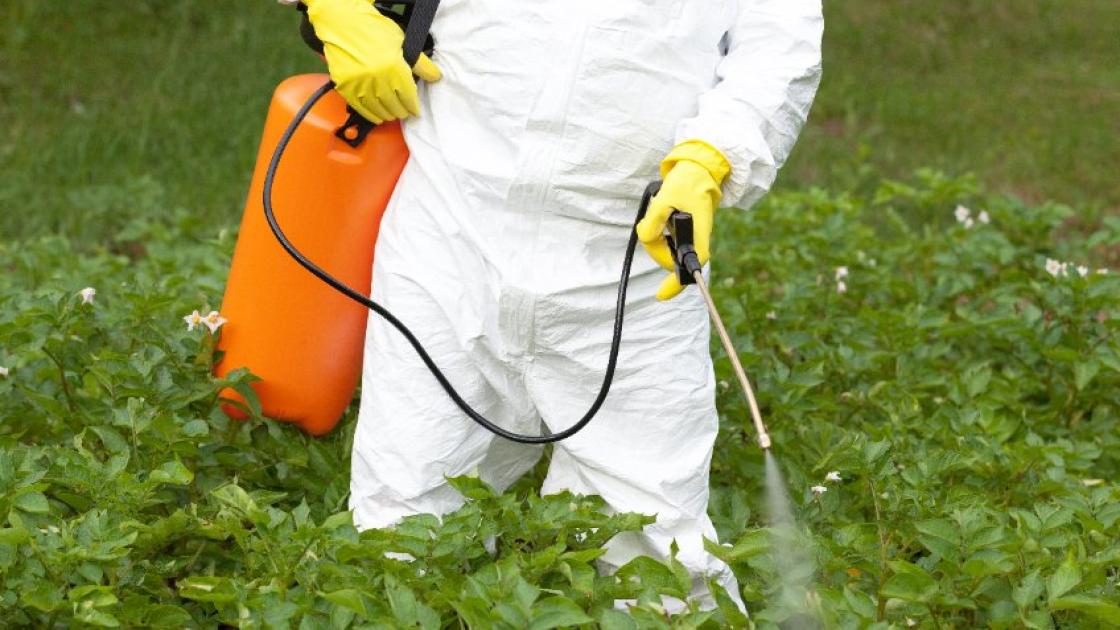
Contact dermatitis: Causes, symptoms and prevention strategies for farmers
It's not just cuts, scrapes, bruises and sunburns—contact dermatitis is one of the most common types of skin issues faced by farmers. Learn more about the causes and symptoms of contact dermatitis and what farmers can do to prevent this common skin problem.
What is contact dermatitis?
Contact dermatitis is a type of skin rash that develops after the skin touches a substance that irritates it or triggers an allergic reaction. Two types of contact dermatitis exist: allergic contact dermatitis and irritant contact dermatitis.
Allergic contact dermatitis happens when the skin is exposed to a substance (called an allergen) that triggers an abnormal response by the person's immune system. Farmers are frequently exposed to substances that are known to trigger allergic reactions in some people, including:
- Poison ivy
- Pollen
- Other compounds found in plants
- Pet and livestock dander
- Nickel and other metals
- Preservatives found in sunscreen and other cosmetics or self-care products
Irritant contact dermatitis happens when the skin is exposed to an irritating chemical substance. Unlike allergic contact dermatitis, which may take hours or days to develop, irritant contact dermatitis usually develops within minutes after initial exposure to the chemical.
Farmers often work directly with chemicals and compounds that can irritate their skin, including:
- Pesticides and herbicides
- Fertilizers
- Animal feed additives
- Animal waste
- Water that contains chemicals or agricultural run-off
- Resins, plastics, and epoxies
- Solvents
- Rubber
- Detergents and harsh soaps
- Other chemicals used in or on farming equipment
Signs and symptoms
The main symptom of contact dermatitis is an itchy red rash. The rash can spread to other areas of skin that weren't originally exposed to the allergen or irritant.
In addition to a rash, farmers with contact dermatitis may experience uncomfortable signs and symptoms like:
- Skin swelling and hives in the affected area
- Pain, including burning or stinging
- Blisters that may break open, ooze and eventually scab over
- Scaling or flaky skin
Treatments — and why you should see a health care provider
Here’s some good news: Contact dermatitis is not contagious, and it's treatable!
If you have contact dermatitis or have symptoms that you're concerned about, talk to a health care provider. He or she can help you figure out what's causing your skin issue, usually by conducting a personal history and physical exam.
First and foremost, treatment for contact dermatitis involves avoiding exposure to the substance that triggers the reaction. Your doctor may also recommend oral medications or topical ointments to soothe symptoms and reduce inflammation, such as corticosteroids.
If you have a skin reaction to something on the farm, should you “wait it out” and see if it gets better? While contact dermatitis may improve on its own in a few weeks, complications can occur, including skin infections. While rare, some people with contact dermatitis may also develop a severe allergic reaction called anaphylaxis. This is a life-threatening health condition that requires immediate medical attention. If you or someone you know develops a severe rash, hives, flushed or pale skin, dizziness, lightheadedness, nausea, vomiting or trouble breathing after exposure to a chemical or allergen, call 911 right away.
How you can prevent contact dermatitis
As a farmer, there are ways you can reduce your risk of contact dermatitis.
- Educate yourself about the types of chemicals you use on your farm.
- Always wear appropriate personal protective equipment (PPE), including gloves, respirators, goggles, coveralls and shoe covers.
- Wash your hands thoroughly after contacting an allergen or chemical irritant.
- When possible, avoid or minimize your exposure to substances that irritate your skin.
Visit siumed.org/doctor to explore our list of providers who can help you to learn more about resources near you.
Karen Leavitt Stallman
Ag Resource Specialist



